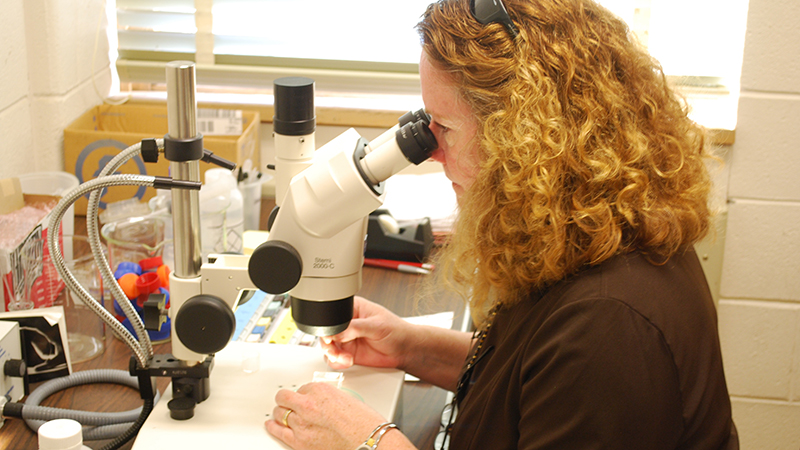A CESU project must be collaborative and within the natural resource and cultural mission of the CESU system.
Projects must adhere to Project Criteria.
In accordance with the CESU Network Federal Agency Memorandum of Understanding, the CESU Network Council may establish policies guiding the activities of the Network. Effective immediately, all projects administered through the CESU Network must adhere to the following criteria. Henceforth, these criteria will be incorporated by reference (under Article II) into each CESU agreement.

1. CESU projects must be cooperative, with substantial involvement by the federal partner.
In accordance with section 6305 - Using cooperative agreements of the Federal Grant and Cooperative Agreements Act of 1977 (31 U.S.C. § 6301 et seq.), substantial involvement is expected between the federal partner and the nonfederal partner when carrying out the activities specified in the project agreement. A project plan of work must clearly outline the substantial participation of both nonfederal partner and the federal agency. Examples of cooperative and substantial involvement include, but are not limited to, the following:
- The federal partner is involved in development of study methodology, data gathering, analysis, and/or report writing
- The federal partner actively participates and collaborates in carrying out the project plan of work, reviews and approves activities, helps train or select project staff or trainees
- The federal partner incurs in-kind or direct expenditures in carrying out the activities specified in the project agreement. Examples include, but are not limited to, the following
- Providing housing for research technicians
- Providing vehicles, airplane/helicopter time
- Providing computing services
- Providing staff time to work on the project
Cooperative and substantial involvement does not include services that are routinely provided to non-CESU projects. Examples include, but are not limited to, the following:
- Providing information regarding clarification/identification of research problem
- Granting permission to conduct study on lands managed by the agency (e.g., issuance of permits)
- Sharing data from previous research
- Normal project management responsibilities, such as approving invoices, financial reporting, project performance monitoring to ensure that the objectives, terms and conditions of the award are accomplishedGeneral administrative requirements, such as those included in OMB Circulars
2. CESU projects must support a public purpose.
In accordance with section 6305 - Using cooperative agreements of the Federal Grant and Cooperative Agreements Act of 1977 (31 U.S.C. § 6301 et seq.), all CESU projects must carry out a public purpose of support or stimulation, instead of acquiring goods or services for the exclusive direct benefit of the United States Government. Examples of carrying out a public purpose may include, but are not limited to, the following:
- Project results are made available to a wide audience (including nonfederal entities)
- Project results/outputs add to the scientific literature/knowledge base, with applicability and utility beyond the scope of the project footprint/study area
- Academic and other nonfederal partner institutions (and their personnel) gain professional experience, increase knowledge, and develop skills and abilities
- Students benefit from direct interaction with federal scientists, program and technical staff, and field unit managers
3. CESU projects must be consistent with and support the mission of the CESU Network.
The mission of the CESU Network is to promote, conduct, and provide research, technical assistance and education services nationwide in support of the missions of participating federal agencies and their partners concerning natural and cultural resource management on federal and/or private lands and waters.
To achieve this mission, each CESU project is conducted cooperatively and with substantial involvement by and benefits to federal and nonfederal partners. Each project must also be consistent with the mission of the individual CESU through which it is administered.
4. CESU project announcements must specify indirect cost rate application.
Federal financial assistance announcements - for example, request for proposal (RFP), funding opportunity announcement (FOA), request for statement of interest (RSI or SOI) - for projects intended to be administered through a CESU, must clearly state that application of the CESU Network system-wide indirect cost rate (IDC) is expected.
Project awards solicited and awarded to CESU nonfederal partner institutions through a CESU federal agency's open (i.e., non-CESU) RFP or similar competitive process are not automatically eligible for administration through a CESU. Such awards may be administered through a CESU only upon mutual agreement and official authorization by both parties, whereby acceptance of the application of the CESU Network IDC rate, in lieu of the IDC rate specified in the original RFP, and all additional terms and provisions of the CESU agreement is explained.
Additionally, for an existing non-CESU award-funded program or project to transition to a CESU project (e.g., administered through a CESU, application of CESU Network IDC rate), rationale must be provided that documents how the project meets criteria 1-3 above.